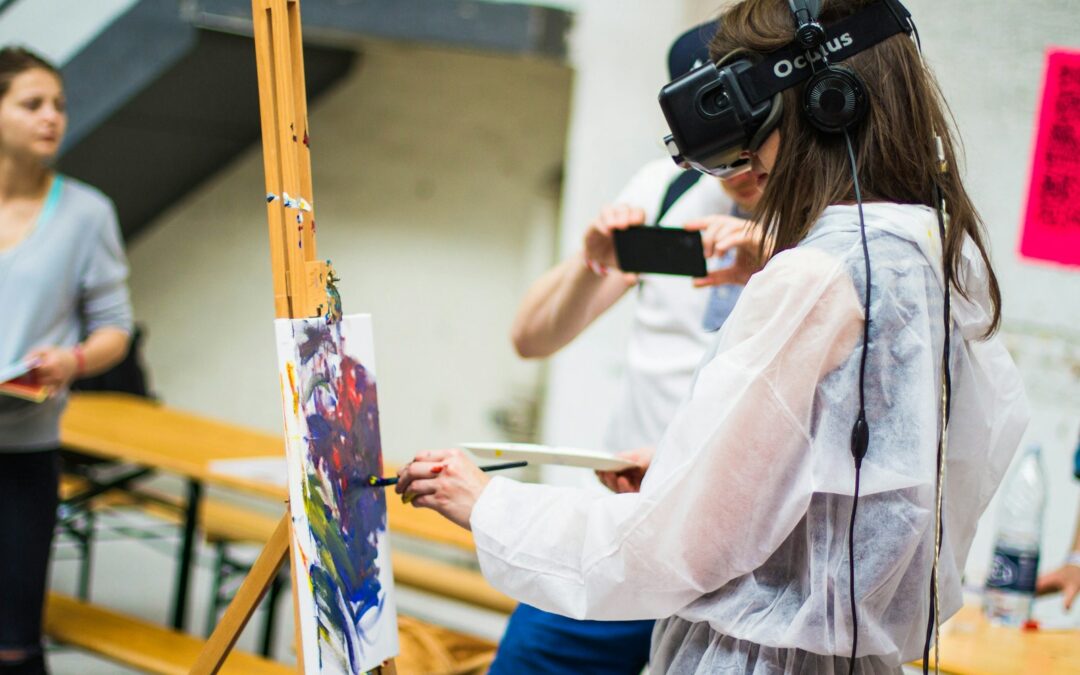Navigating the Intersection of Virtual Reality and Perception
Virtual Environments: Redefining Reality
Virtual environments offer experiences that can closely mimic or even surpass those in the physical world, challenging traditional notions of reality. Philosophers have long debated the nature of reality, and VR adds a new dimension to these discussions. By immersing users in artificial worlds that feel real, VR blurs the line between what is real and what is simulated. This raises questions about the nature of existence and whether multiple, equally valid realities can coexist.
Moreover, VR can alter our perception of time and space. In virtual environments, users can experience scenarios that defy physical limitations, such as traveling to distant places instantaneously or manipulating time. These capabilities challenge our conventional understanding of temporal and spatial constraints and encourage us to rethink how we perceive and interact with the world. This redefinition of reality has significant implications for various fields, including education, entertainment, and professional training.
Impact on Human Perception and Cognition
The philosophical implications of virtual environments extend to human perception and cognition. VR can manipulate sensory inputs to create experiences that feel real, even though they are entirely artificial. This raises questions about the reliability of our senses and the nature of perception. If our sensory experiences can be so easily manipulated, what does this say about the trustworthiness of our perceptions and the information we derive from them?
In virtual environments, users can assume different identities and interact with others through avatars, altering their sense of self and others. This can lead to significant shifts in self-perception and social dynamics. For instance, individuals might experiment with different aspects of their identity in VR, adopting behaviors and traits that they would not exhibit in the physical world. These experiences can have lasting effects on how individuals perceive themselves and their relationships with others.
Furthermore, the cognitive impact of VR includes changes in memory and learning. Immersive VR experiences can create vivid, lasting memories that feel as real as those formed in the physical world. This has significant implications for education and training, where VR can enhance learning outcomes by providing interactive and engaging experiences. However, it also raises ethical questions about the creation and manipulation of memories and the potential for virtual experiences to distort or replace real-life experiences.
Influencing Our Understanding of Perception and Reality
Philosophical Challenges and Opportunities
The philosophical challenges posed by virtual environments also present opportunities for new insights and understandings. By engaging with VR, philosophers and scientists can explore fundamental questions about consciousness, existence, and the nature of reality. Virtual environments provide a unique platform for experimental philosophy, allowing for the testing of theories and hypotheses in controlled yet immersive settings.
One key area of exploration is the relationship between virtual and physical realities. Virtual environments can be seen as extensions or augmentations of the physical world, rather than separate entities. This perspective can lead to a more integrated understanding of reality, where virtual and physical experiences are part of a continuous spectrum. This integrated view can influence how we approach and design virtual environments, ensuring they complement and enhance physical experiences rather than replace them.
Additionally, the ethical implications of VR must be addressed. Issues such as privacy, consent, and the potential for addiction or psychological harm require careful consideration. As VR technology becomes more prevalent, establishing ethical guidelines and best practices is essential to protect users and ensure positive outcomes. Engaging with these ethical challenges can lead to more responsible and thoughtful development of virtual technologies.
Applications in Business and Society
The philosophical implications of virtual environments have practical applications in business and society. In regions like Saudi Arabia, the UAE, Riyadh, and Dubai, businesses can leverage VR to create innovative solutions and enhance customer experiences. VR can transform industries such as real estate, tourism, and entertainment by providing immersive and interactive experiences that drive engagement and satisfaction.
For example, VR can revolutionize the real estate industry by allowing potential buyers to tour properties remotely. This can save time and resources while providing a more engaging and informative experience. Similarly, the tourism industry can use VR to offer virtual tours of destinations, enhancing marketing efforts and attracting more visitors. In entertainment, VR can create new forms of storytelling and interactive experiences, pushing the boundaries of creative expression.
Furthermore, VR can enhance remote collaboration and training in the workplace. VR can simulate complex scenarios for training purposes, providing a safe and controlled environment for learning and practice. This can improve skill acquisition and retention, leading to better performance and productivity. In remote work settings, VR can facilitate collaboration and team-building, fostering a sense of presence and connection despite physical distances.
Conclusion
In conclusion, the philosophical implications of experiencing reality through virtual environments are profound and far-reaching. Business executives, mid-level managers, and entrepreneurs in Saudi Arabia, the UAE, Riyadh, and Dubai must navigate these implications thoughtfully and responsibly. By understanding the impact of virtual environments on perception, cognition, and reality, and addressing the associated ethical challenges, businesses and society can harness the potential of VR to create meaningful and transformative experiences. This approach not only advances technological innovation but also enriches our understanding of human perception and the nature of reality.
—
#virtualreality #philosophicalimplications #perception #moderntechnology #SaudiArabia #UAE #Riyadh #Dubai

